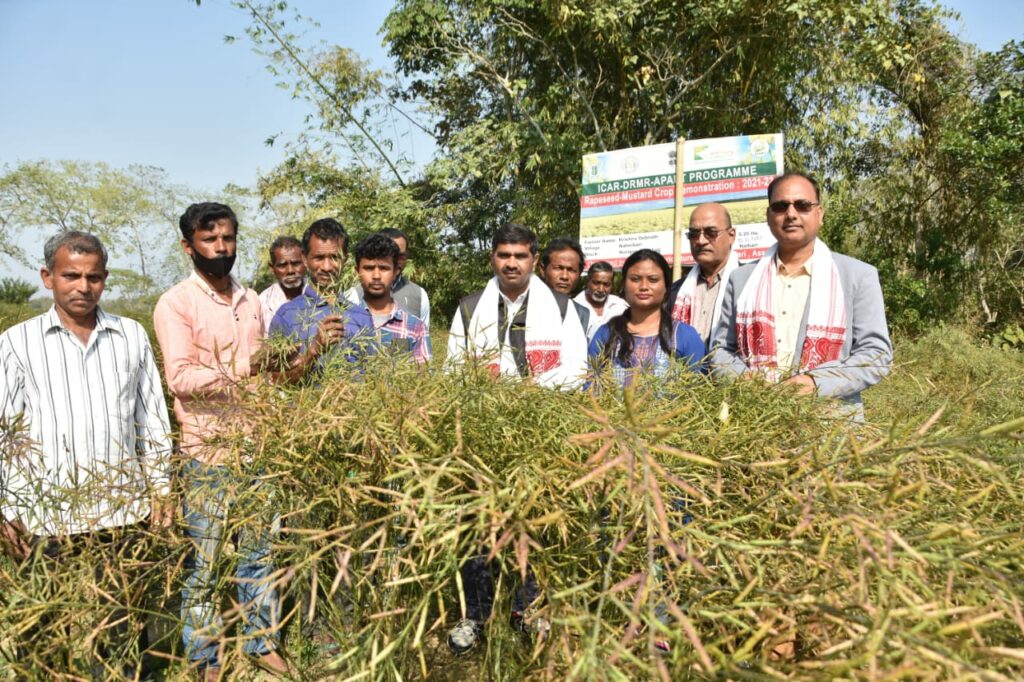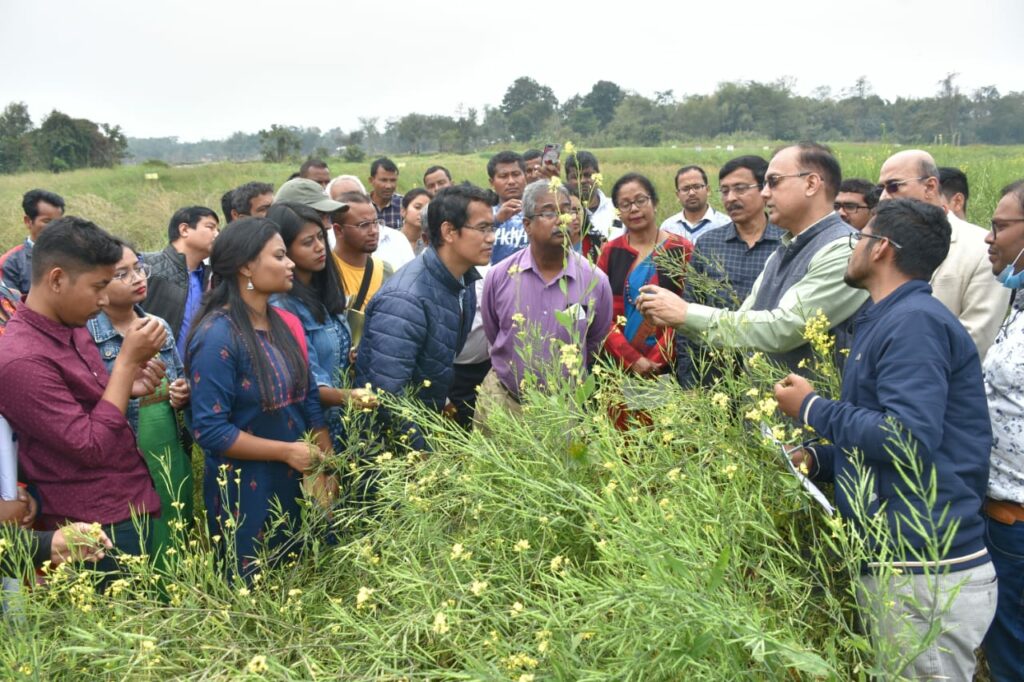Spread the love
Guwahati: APART will conduct a programme with 1,20,000 farmers in collaboration with the World Bank in order to increase the production of rapeseed mustard in the state of Assam.
In order to reduce the escalating imports of edible oil, policy planners are particularly concerned with increasing the domestic supply of that oil in their own place.
The project's key objective is to increase Assamese farmers' rapeseed-mustard production in order to ensure their long-term financial security. To accomplish this, more people will have access to timely information and technologies, which will close yield gaps in the rapeseed/mustard value chain.
One of the main sources of edible oil in the nation, rapeseed-mustard has massively improve the domestic market for edible oil over the past few years.
On April 28, 2020, the Director of Agriculture, Government of Assam, and the Indian Council of Agricultural Research-Directorate of Rapeseed-Mustard Research signed a Memorandum of Understanding (MoU) for the project "Consultancy services for technical augmenting rapeseed-mustard production in Assam for sustainable livelihood security".

The rapeseed-mustard crop has excellent output potential when it is cultivated with the help of technology and understanding. Many rapeseed-mustard technologies have been created in the previous ten years, however there is a significant acceptance gap, especially among smallholder farmers, for some of the established technology. Through increased output and productivity of rapeseed-mustard, increased technological adoption—broadly construed to encompass adoption of improved agricultural techniques, crop varieties, inputs, and related products—has the potential to support economic growth. The program's goal is to boost local rapeseed-mustard output and reduce farmer poverty.
The Directorate of Rapeseed-Mustard Research at the Indian Council of Agricultural Research (ICAR) is supporting the initiative with technical assistance, human resource planning, capacity building of all stakeholders, and creation of awareness of better varieties and scientific rapeseed-mustard farming.
The development of a group of educated, capable, and forward-thinking farmers who have a better grasp of technology and procedures in scientific rapeseed-mustard production and protection has been envisaged. They will use this knowledge for their own benefit and that of their fellow farmers.

Madhuram Patiri, Joint Director of the Department of Agriculture, states that the World Bank itself has put more focus on enhancing Assam's rural economy.
There were initially 16 districts for this project.
However, there are currently 26 districts that are responsible for the activities since some districts split into two more from one entire.
Currently, Jorhat and Majuli are the names of the districts. Golaghat, Karbi Anglong, West Anglong, Nagaon, Hojai, Morigaon, Kamrup, Kamrup (Metro), Goalpara, Cachar, Dhuburi, South Sarania, Kokrajhar, Barpeta, Nalbari, Darrang, Sonitpur, Bishwanath, Hailakandi, Lakhimpur, Dhemaji, and Bongaigaon are some of the places mentioned.
Up to 16 commodities are chosen for such augmentation and enhancing the value chain of the same. Paddy, maize, mustard, black gramme, pea, lentil, rajma, potato, tomato, brinjal, cauliflower, cabbage, pumpkin, meat, fish, eri, as well as certain spices, are among these.
The present focus is on paddy, maize, mustard, black gram, pea, lentil, and rajma.
In order to help farmers locate the right equipment for their needs, there are plans to enhance the items' marketing.
Several government agencies are involved in this project, including the Directorate of Agriculture, Directorate of Horticulture, Assam Agriculture University, Assam State Marketing Board, Assam Warehousing Co-orporation, Department of Industry and Commerce, Department of Fishery, Department of Animal Husbandry and Veterinary, Directorate of Dairy, NDDB, Directorate of Handloom and Textiles, Assam Livestock and Poultry Corporation Limited, Sericulture and Public Works Depaertment, Panchayat and Rural Development.
All of these departments, in Patiri's opinion, are essential to the project.
The initiative was inittiated in 2016 with the assistance from the World Bank and the Assam Agri Business and Rural Transformation Project.
The Assam Agribusiness and Rural Transformation Project will be carried out using a loan from the World Bank in the amount of USD 200 million, provided through the Government of India.
For each crop augmentation and other operations, many international organisations are involved. Among them are the World Fish Centre in Malaysia, the World Vegetable Centre in Taiwan, the International Rice Research Institute in the Philippines, the International Livestock Research Institute in Kenya, and the International Potato Centre in Peru.
Farmers are receiving technical assistance from the International Fertilizer Development Corporation.
Despite being farmed on a sizable scale in Assam, rapeseed-mustard productivity is much lower than the national average (1511 kg/ha) (660 kg/ha). Because rapeseed-mustard can grow in a variety of agro-climatic zones, expanding the crop to unconventional regions, particularly in rice-fallow, is one way to improve output.
Oilseed farming in Assam can be encouraged by the abundance of natural resources and fertile soil. If cultivation is aided by the right technology solutions and informational inputs, rapeseed-mustard has a good output potential. In order for Assam to experience the yellow revolution, the right varieties and technologies will probably be crucial.
Scientists from ICAR DRMR estimated that 27, 673 people have benefited from mustard cultivation as of this point.
ALSO READ: Meghalaya unveils NE’s first drone delivery hub & network